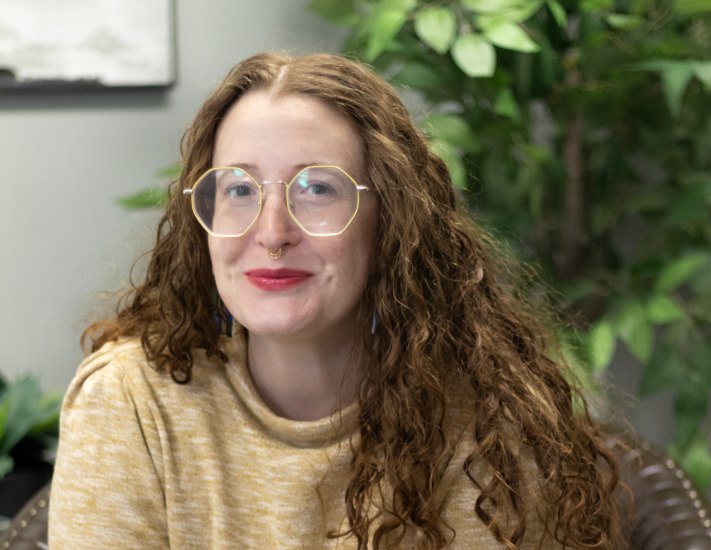August 5, 2022
What is Disenfranchised Grief
Disenfranchised grief is when you experience grief about something or in a way that is out of society’s expectations. This makes sense when we break down the term more. Disenfranchised means to deprive someone of a right. When feelings of grief come, but society doesn’t accept or understand our grief, the right to the grief process can feel taken from us. Grief is a normal experience when something is lost. However, there are often unspoken cultural and societal limits around what is considered a “normal” thing to grieve.
When we think of situations where people grieve, we often first think of the death of a family member or close friend. But this is only one of the innumerable losses that can elicit grief. If the situation prompting our grief response is outside a “typical” grief experience, we may feel unsupported, misunderstood, or even question whether we have a right to grieve at all. This is exactly what disenfranchised grief looks like.
Examples of disenfranchised grief
There have always been situations that prompt disenfranchised grief. However, the COVID-19 pandemic has created and facilitated losses that fall into this category at a magnitude that is perhaps greater than we had experienced before. Some examples of losses that may produce grief outside of societal and/or cultural expectations are:
- The death of or inability to keep a pet
- Canceling or being unable to attend a significant event or ceremony such as a graduation, wedding, funeral, etc.
- The loss of health due to disability or illness
- Unmet future expectations like an adoption falling through, inability to relocate as planned, infertility, canceling a trip, or ending a relationship with a significant other
While we may recognize some of these experiences and think: “This happened to me, and I didn’t grieve, is there something wrong with me?” don’t worry. Everyone grieves differently, meaning that people going through the same or similar situations may or may not grieve those situations at all. If you relate to something on this list that you have grieved or are grieving, I hope you feel comfort in knowing that you are seen and your grief is valid. As the definition of disenfranchised grief suggests: grief is a right when one experiences a loss. Not only is it okay to grieve, but it is also important and sometimes even necessary for our wellbeing. There is no such thing as a loss to “small” or “insignificant” for grief.
Stages of grief
Many of us are familiar with the term “Stages of Grief.” Developed in 1969 by Elisabeth Kubler-Ross for her book On Death and Dying, the 5 stages of grief are denial, anger, bargaining, depression, and acceptance. These are absolutely relatable and many experiences of grief generate these 5 steps in this or a similar order. However, this isn’t true for everyone. Kubler-Ross developed these stages in response to her work with terminally ill patients preparing for their own death. When the situation surrounding our grief looks different, it makes sense that our grief process may also look different.
It is completely normal and natural to experience these stages in a different order, revisit them, have emotional experiences that fall outside these stages, and even feel grief in a cyclical way. Grief is messy and complicated, so it may not fit nicely into a linear path.
Processing and support for disenfranchised grief
Since disenfranchised grief, by definition, doesn’t align with societal expectations of grief, our grieving process will likely follow suit. Because of this, we might need to seek non-traditional support. There are not often grief groups that relate to our circumstances. Our friends may not know how or if to offer condolences. We may be unable to take paid leave from work like we would for a more “traditional” loss. This can be discouraging and can make us feel alone. This doesn’t mean that support isn’t out there, though. Sure, it may take some time or trial and error, but there are places for you.
The “typical” grief experience following the death of a loved one often includes a funeral, celebration of life, or other ceremony or service. These rituals can be incredibly helpful and healing in the grief process by providing closure, a space to mourn, and using physical space and actions to structure memorializing a loss. We do not have to reserve rituals for deaths. We can create our own practice to commemorate whatever loss we experience. Lighting a candle, engaging in a reading, gathering loved ones together to acknowledge a shared loss, or planting a tree are all ways we can integrate a ritual into our grief process. Everyone experiences grief differently meaning there is no wrong or right way, no good or bad way, and no expectations for how you need to experience and express grief.
Whatever the circumstance and however disenfranchised grief may look for you, you do not have to be without support. Friends, loved ones, and support groups can all be invaluable resources. If you need additional support, Optimum Joy counselors are here to help. We are honored to walk with you through grief of all kinds.
We can help you get started
Articles by Megan Hanafee-Major
Written By
Megan Hanafee-Major

Related Articles
-
Coping with Existential Anxiety
It’s easy to get lost in the big questions What’s the meaning of life? How do...
Read More -
A Spring Check-In
Spring signifies the emergence out of the cold, dark winter into a brighter, greener season of...
Read More -
Using Art Therapy to Combat the Winter Blues
I have a confession to make. Winter is my least favorite season. I know, I know,...
Read More